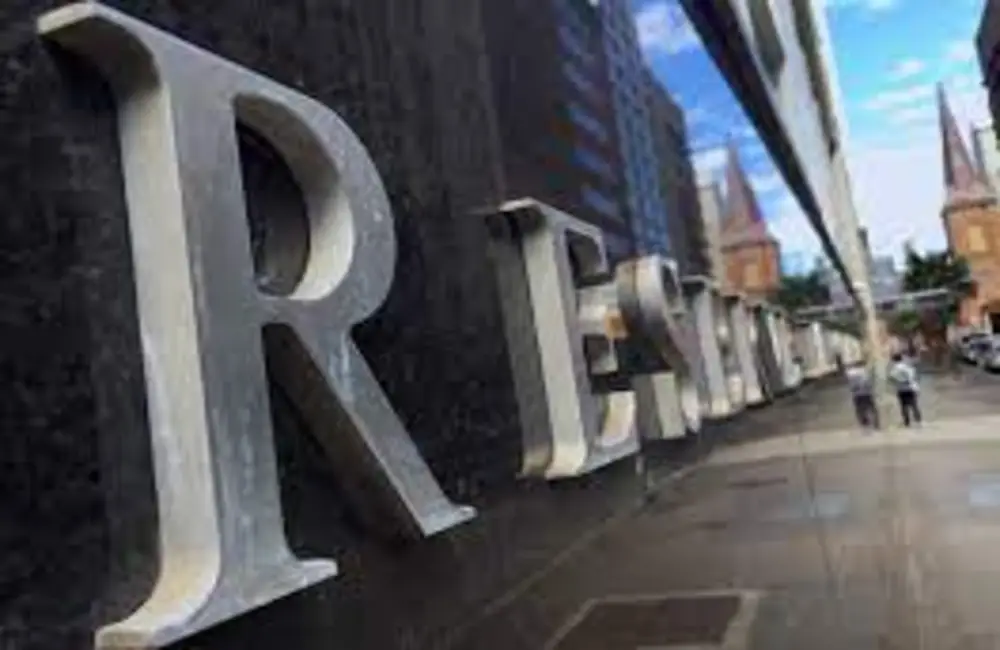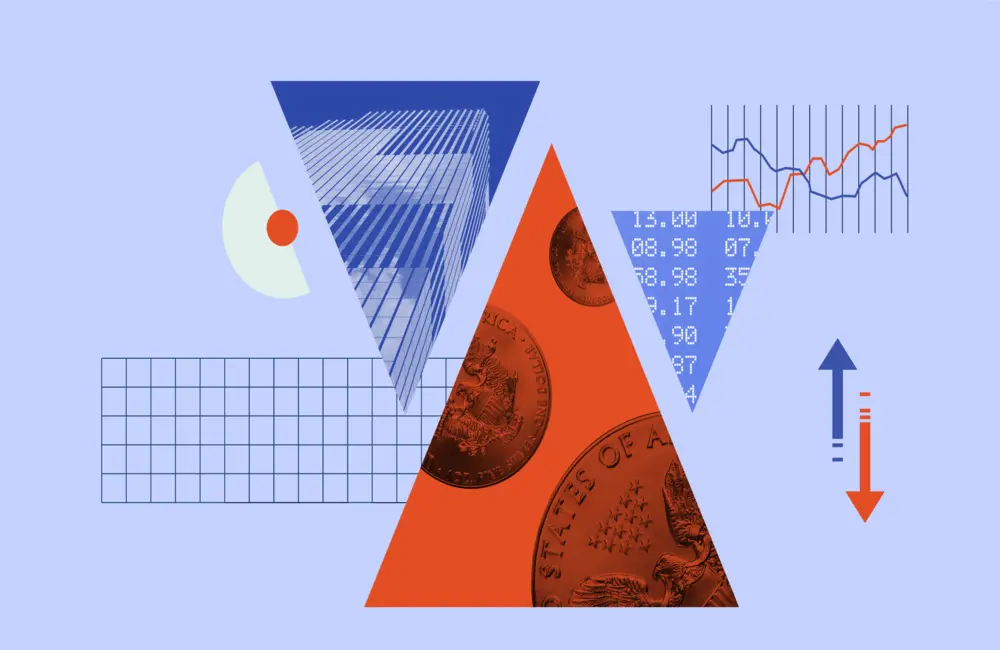ASX
ASX futures had lost 39 points or 0.6% as of 7:00am on Friday, pointing to a decline at the open.
US stock indices rose Thursday, recouping losses after a wild trading session Wednesday, when the Federal Reserve raised interest rates by a quarter-point.
The S&P 500 added 0.3%, a day after the broad-market index lost 1.6%. The tech-heavy Nasdaq Composite climbed 1.0% and the Dow Jones Industrial Average climbed 0.2%.
Fed Chair Jerome Powell's post-meeting press conference triggered a topsy-turvy trading day, with major indices rallying while he spoke, only to give up those gains shortly after. Some traders attributed the late-day selloff to comments Treasury Secretary Janet Yellen made at a Senate hearing, in which she said she was not considering ways to guarantee all bank deposits.
Some investors said they were encouraged by Mr. Powell's message. The prospect of an end to rate increases helped drive a broad rally early in the session. Mr. Powell said that officials considered skipping a rate hike after banking stress intensified last week. The Fed’s latest policy statement suggested it may be done raising interest rates soon. Investors have ramped up bets that rates will be lower later this year.
In commodity markets, Brent crude oil dipped 1.3% to $US75.68 a barrel while gold advanced 1.4% to US$1,996.66.
Yields on Australian government bonds edged lower, with the 2 Year declining to 2.93% and the 10 Year falling to 3.29%. US Treasury notes were also down, with the 2 Year yield slipping to 3.77% and the 10 Year yield sliding to 3.38%.
The Australian dollar was at 66.86 US cents, remaining near its previous close of 66.84. The Wall Street Journal Dollar Index, which tracks the US dollar against 16 other currencies, edged down to 96.06.
Asia
Chinese stocks ended the session higher. The benchmark Shanghai Composite Index rose 0.6% to settle at 3286.65, the Shenzhen Composite Index gained 0.6% to 2111.45, while the tech-heavy ChiNext Price Index led the pack, advancing 0.8%. Tech companies including chip makers, software developers and consumer-electronics manufacturers were among the top performers. The market may sustain this recent uptick for longer, analysts said, as a prior pullback brightened stocks' risk-reward profile and triggered more buying interest.
Hong Kong's benchmark Hang Seng Index closed 2.3% higher at 20049.64, extending its winning streak. Concerns about the global banking crisis eased and market sentiment improved, boosted by tech stocks. Tencent Holdings jumped 8.2% after posting 12% net profit growth for Q4. That marked the Chinese tech giant's biggest daily gain since November 2022 and boosted the share prices of other tech companies. The Hang Seng Tech Index rose 4.7%. Meituan advanced 8.3% and Xiaomi was up 7.2%. Ping An Insurance added 2.1% and CITIC Ltd. rose 1.2%. Among decliners, CSPC Pharmaceutical dropped 7.3% after rising 2.45% on Wednesday following news that its mRNA Covid vaccine was approved by Chinese authorities.
Japanese stocks ended lower, dragged by falls in financial and electronics shares. Turmoil in the global banking sector and the Federal Reserve’s latest rate hike weighed on investor sentiment. Fujitsu Ltd. dropped 2.3% and Resona Holdings lost 1.7%. The Nikkei Stock Average fell 0.2% to 27419.61.
India's Sensex index ended 0.5% lower at 57925.28, tracking Wall Street losses overnight after the Federal Reserve raised interest rates by a quarter percentage point, the ninth straight rate increase to tackle inflation. State Bank of India dropped 1.7% and IndusInd Bank was 1.3% lower. HCL Technologies fell 1.4%. Among gainers, Nestle India added 1.25% and Tata Motors rose 0.7%.
Europe
European stocks closed mixed as investors assessed a raft of interest rate decisions from the Bank of England and the Federal Reserve. The pan-European Stoxx Europe 600 fell 0.2%, the German DAX closed flat and the French CAC 40 climbed 0.1%. The BOE raised rates by 25 basis points Thursday after the Fed lifted rates in the US by the same amount on Wednesday.
The United Kingdom’s FTSE 100 ended Thursday down 0.9% in the wake of US Treasury Secretary Janet Yellen saying there were not any plans to extend banking deposit insurance. "The FTSE 100 in particular has struggled on a combination of ex-dividends, and a weak performance from banks. British American Tobacco was the worst performer on an ex-div basis, while HSBC and Standard Chartered have also slipped after posting two successive days of gains," CMC Markets analyst Michael Hewson explained. Melrose Industries ended the day as the biggest gainer, finishing up 3.7%, while British American Tobacco was the biggest faller, closing 3.7% lower.
North America
US stock indices rose Thursday, recouping losses after a wild trading session Wednesday, when the Federal Reserve raised interest rates by a quarter-point.
The S&P 500 added 0.3%, a day after the broad-market index lost 1.6%. The tech-heavy Nasdaq Composite climbed 1.0% and the Dow Jones Industrial Average climbed 0.2%.
Fed Chair Jerome Powell's post-meeting press conference triggered a topsy-turvy trading day, with major indices rallying while he spoke, only to give up those gains shortly after. Some traders attributed the late-day selloff to comments Treasury Secretary Janet Yellen made at a Senate hearing, in which she said she was not considering ways to guarantee all bank deposits.
Some investors said they were encouraged by Mr. Powell's message. The prospect of an end to rate increases helped drive a broad rally early in the session. Mr. Powell said that officials considered skipping a rate hike after banking stress intensified last week. The Fed’s latest policy statement suggested it may be done raising interest rates soon. Investors have ramped up bets that rates will be lower later this year.
"There's been a bit of calm restored. A big part of it is that the Fed has signaled that they're almost done," said Fahad Kamal, chief investment officer at Kleinwort Hambros.
Still, it has been a turbulent stretch. The month has been dotted with eye-popping one-day moves in everything from regional bank shares to ultrasafe government bonds. The S&P 500 lost more than one percentage point after Mr. Powell's press conference and through the end of the trading session Wednesday, according to Bespoke Investment Group analysts.
The recent volatile trading highlights how investors have been grappling with two economic realities. On the one hand, inflation is still high and the Fed has said it is committed to combating it. Mr. Powell reiterated Wednesday that rate cuts later this year, which many investors still expect, are not his "baseline expectation."
At the same time, a banking crisis continues to unfold in the US, which has exacerbated worries about a recession and led to turbulence for small regional banks. Shares of such banks were among the biggest losers in the S&P 500 on Thursday.
Meanwhile, fresh data released early Thursday showed that filings for unemployment benefits held nearly steady last week, a sign that the broader labor market is robust despite large companies announcing layoffs.
"The strength of today's data is a reminder that our expected decline in labor market strength is starting off from an extremely strong position, and it will take time to play out," Jefferies economists wrote in a note to clients.
Tech stocks led the way Thursday. The S&P 500's information-technology sector added 0.3%, while the communication-services sector jumped 1.8%. Netflix stock was the biggest gainer in the index, adding 9.0%.























